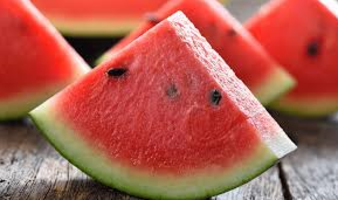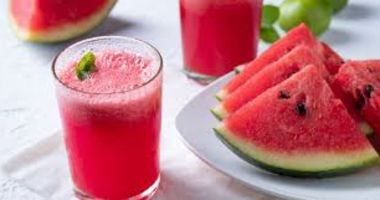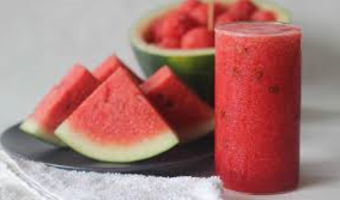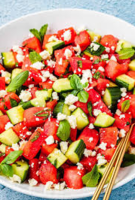Summer brings with it sunshine, warmth, and some of the most refreshing fruits nature has to offer. Standing tall among these seasonal delights is the beloved watermelon – that perfect combination of sweetness and hydration that has graced picnics and family gatherings for generations. But beyond its delightful taste and thirst-quenching properties, have you ever stopped to consider the many reasons why eating watermelon is good for you?
This juicy fruit isn’t just a treat for your taste buds; it’s a powerhouse of nutrition that delivers impressive health benefits with every bite. From supporting heart health to enhancing skin appearance, watermelon offers a remarkable range of advantages that might surprise even its most devoted fans.
Whether you’re a longtime watermelon enthusiast or just curious about incorporating more nutritious foods into your lifestyle, you’re about to discover compelling reasons why eating watermelon is good for you and your whole family.

The Nutritional Profile of Watermelon
Watermelon Nutrition Facts (per 1 cup/152g serving):
- Calories: 46
- Water: 92% by weight
- Carbohydrates: 11.5g
- Fiber: 0.6g
- Sugars: 9.4g
- Protein: 0.9g
- Fat: 0.2g
- Vitamin A: 18% of the Daily Value (DV)
- Vitamin C: 21% of the DV
- Potassium: 5% of the DV
- Magnesium: 4% of the DV
- Vitamin B6: 3% of the DV
Watermelon also has some thiamin, folate, pantothenic acid, copper, riboflavin, niacin, and manganese. What makes this fruit particularly special is its rich content of plant compounds including lycopene, citrulline, and cucurbitacin E, which contribute significantly to its health benefits.
Benefits of Eating Watermelon
Exceptional Hydration Support
With an astounding 92% water content, watermelon is one of the most hydrating foods you can eat. During hot summer months or after physical activity, consuming watermelon can help replenish fluids and electrolytes lost through sweat. Watermelon’s hydrating properties go beyond just giving you water.

The fruit contains electrolytes like potassium and magnesium that help maintain proper fluid balance in your body. Many people struggle to drink enough water throughout the day, and incorporating water-rich foods like watermelon into your diet can significantly contribute to your daily fluid intake in a delicious way.
The reasons why eating watermelon is good for you begin with this fundamental benefit – keeping your body properly hydrated is essential for nearly every bodily function.
Heart Health Promotion
Heart disease remains the leading cause of death worldwide, but incorporating watermelon into your diet may help protect this vital organ. The fruit contains several compounds that support cardiovascular health in multiple ways. Lycopene, the plant compound that gives watermelon its red color, has been linked to lower risks of heart disease.
Additionally, watermelon contains citrulline, an amino acid that may improve blood flow by helping to dilate blood vessels. When consumed, citrulline converts to arginine in the body, which supports the production of nitric oxide – a compound that relaxes blood vessels and potentially lowers blood pressure.
The potassium in watermelon also plays a crucial role in heart health by helping to regulate blood pressure and counteract the effects of sodium. Maintaining a proper potassium-sodium balance is essential for optimal heart function and blood pressure control.
Inflammation Reduction
Chronic inflammation is associated with numerous health problems, including heart disease, cancer, and arthritis. The lycopene and vitamin C in watermelon both have anti-inflammatory properties that may help mitigate inflammatory responses in the body.
Studies indicate that watermelon consumption may help reduce inflammation markers in the body, potentially providing relief for conditions like arthritis and asthma.
For those suffering from inflammatory conditions, incorporating anti-inflammatory foods like watermelon into a balanced diet may complement other treatment approaches and contribute to overall symptom management.

Enhanced Digestive Health
Digestive wellness forms another compelling entry in our list of reasons why eating watermelon is good for you. Though relatively low in fiber compared to some other fruits, watermelon’s high water content and the fiber it does contain work together to support healthy digestion and prevent constipation.
This natural support for your digestive system can help prevent common issues like constipation and promote regularity. Watermelon also contains prebiotics that feed beneficial gut bacteria, supporting a healthy microbiome.
An optimal balance of gut bacteria has been linked to improved digestion, stronger immunity, and even enhanced mental health due to the gut-brain connection.
Skin and Hair Benefits
The beauty benefits of watermelon make it a natural addition to your skincare routine – from the inside out. The fruit contains vitamins A and C, which are needed for good skin and hair formation. Collagen synthesis, which makes your skin elastic and tight, depends on vitamin C.
Collagen production naturally declines with age, but vitamin C-rich meals can help maintain this important process. Vitamin A helps repair and create skin cells, while the water content in watermelon helps keep skin hydrated and potentially reduce the appearance of fine lines.
The lycopene in watermelon may also provide some protection against sun damage, though it should never replace conventional sun protection methods. For hair health, the vitamins in watermelon contribute to stronger, shinier strands and may help reduce hair loss related to nutrient deficiencies.
Weight Management Support
For those mindful of their weight, watermelon offers a satisfying sweet treat with minimal calories. At just 46 calories per cup, it provides significantly fewer calories than many other snack options while delivering substantial nutritional benefits.
The high water content of watermelon contributes to its satiating effect, helping you feel full despite its low calorie count. This makes it an excellent choice for managing hunger between meals without consuming excess calories.
Research suggests that consuming water-rich foods like watermelon before meals may help reduce overall calorie intake, potentially supporting weight management goals when incorporated into a balanced diet and healthy lifestyle.
Cancer-Fighting Potential
While no single food can prevent cancer, certain dietary patterns and nutrients may help reduce cancer risk. Watermelon contains compounds with potential anti-cancer properties, particularly lycopene. Studies have associated lycopene consumption with reduced risks of certain cancers, especially prostate cancer.
This powerful antioxidant helps combat free radicals that can damage cells and potentially lead to cancer development. Additionally, the vitamin C in watermelon supports the immune system, which plays a crucial role in identifying and eliminating abnormal cells before they can develop into cancer.
While more research is needed, incorporating lycopene-rich foods like watermelon into your diet appears to be a prudent approach to overall health maintenance.
Better Workout Recovery
Athletes and fitness enthusiasts might be particularly interested in the reasons why eating watermelon is good for you, especially regarding exercise recovery. The citrulline in watermelon may help reduce muscle soreness and improve recovery time after intense physical activity.
While the concentration in watermelon is lower than in supplements, natural food sources provide a broader spectrum of nutrients that work synergistically. The hydration benefits of watermelon also support optimal physical performance and recovery.
Proper hydration before, during, and after exercise helps maintain blood volume, regulate body temperature, and transport nutrients throughout the body.
Improved Eye Health
The fruit contains beta-carotene, vitamin A, vitamin C, and lutein, all of which contribute to eye health in different ways. Vitamin A is essential for maintaining the cornea and conjunctival membranes, while lutein helps protect against age-related macular degeneration and cataracts.
Together, these nutrients support overall vision and may help prevent common age-related eye conditions. The antioxidants in watermelon also help neutralize free radicals that can damage delicate eye tissues, potentially slowing the progression of certain eye diseases associated with oxidative stress.
Blood Sugar Management
Despite its sweet taste, watermelon has a lower glycemic load than many might expect. This means that when consumed in moderate portions, it typically doesn’t cause dramatic spikes in blood sugar levels.
The fiber content, though modest, helps slow the absorption of sugars into the bloodstream. Additionally, watermelon contains nutrients that support insulin sensitivity, potentially benefiting those concerned about blood sugar management.
For individuals with diabetes or pre-diabetes, watermelon can be enjoyed as part of a balanced diet when portion sizes are carefully monitored and the fruit is paired with foods containing protein or healthy fats to further moderate blood sugar impact.
Delicious Watermelon Recipes to Try
Let’s look at some delightful ways to incorporate this nutritious fruit into your diet beyond simply eating it by the slice.
Refreshing Watermelon Mint Smoothie
Equipment Needed:

- Blender
- Measuring cups
- Knife and cutting board
Ingredients:
- 2 cups cubed watermelon
- 1/2 cup plain Greek yogurt
- 1 tablespoon full of maple syrup or honey (which you can do without)
- 5-6 fresh mint leaves
- 1/2 cup ice cubes
- Squeeze of lime juice
Preparation Instructions:
- Remove any visible seeds from the watermelon cubes
- Add all ingredients to your blender
- Use a blender, switch it on high speed and blend until creamy and smooth
- Taste and adjust sweetness if needed
- Transfer into glasses and add a mint leaf and a tiny watermelon wedge as garnish.
- Serve immediately for best flavor and texture
Tips for Success:
- Use frozen watermelon cubes instead of ice for a more concentrated flavor
- For a dairy-free version, substitute coconut yogurt for Greek yogurt
- If your watermelon isn’t quite sweet enough, add a touch more honey or maple syrup
Watermelon Feta Salad with Cucumber and Mint
Equipment Needed:

- Large mixing bowl
- Salad servers
- Sharp knife and cutting board
- Measuring spoons
Ingredients:
- 4 cups cubed watermelon
- 1 medium cucumber, diced
- 1/2 cup crumbled feta cheese
- 1/4 cup thinly sliced red onion
- 2 tablespoons fresh mint leaves, chopped
- 2 tablespoons extra virgin olive oil
- 1 tablespoon balsamic vinegar
- Salt and pepper to taste
Preparation Instructions:
- Put the watermelon, cucumber, and red onion in a big bowl.
- Pour balsamic vinegar and olive oil over it.
- Gently toss to coat all ingredients
- Add chopped mint and crumbled feta cheese.
- Season with freshly ground black pepper and a tiny teaspoon of salt to taste.
- Toss gently once more and serve immediately
Tips for Success:
- Chill all ingredients before assembly for the most refreshing result
- Add the feta just before serving to prevent it from breaking down
- For a sweeter dressing, substitute honey for the balsamic vinegar
- Since the watermelon will gradually drop water, this salad is best eaten fresh.
Watermelon Sorbet
Equipment Needed:
- Food processor or blender
- Freezer-safe container
- Ice cream scoop
- Measuring cups and spoons
- Spatula
- Plastic wrap
Ingredients:
- 4 cups cubed watermelon, frozen
- 1/4 cup honey or agave syrup
- 2 tablespoons fresh lemon juice
- Pinch of salt
- Fresh mint leaves for garnish (optional)
Preparation Instructions:
- Freeze cubed watermelon on a baking sheet for at least 4 hours or overnight
- Place frozen watermelon in a food processor or blender
- Add honey, lemon juice, and salt
- If necessary, scrape down sides as you blend until smooth and creamy.
- For a soft-serve consistency, serve immediately
- For a firmer sorbet, transfer to a freezer-safe container.
- Press plastic wrap directly against the surface to prevent ice crystals.
- Freeze for an additional 2 hours
- Allow to stand at room temperature for five minutes before to scooping.
- If preferred, garnish with fresh mint leaves.
Tips for Success:
- Choose the sweetest watermelon possible for the best flavor
- The sorbet can be kept in the freezer for up to a week
- Adjust the honey according on how sweet your watermelon is.
- For a creamier version, add 1/4 cup coconut cream to the mixture
Selecting and Storing Watermelon
To fully enjoy the reasons why eating watermelon is good for you, it’s important to select a perfect fruit and store it properly. Here are some expert tips:
How to Choose the Perfect Watermelon:
- Look for a watermelon with a firm, symmetrical shape without bruises or cuts
- Pick it up; it should feel heavy for its size, indicating juiciness.
- Look for a yellow area on one side where it was sitting on the ground ripening-the more yellow, the riper.
- Tap it; a ripe watermelon makes a deep, hollow sound instead of a dull thud.
Storage Tips
- Watermelons that are whole and uncut can be kept for up to a week at room temperature.
- Once cut, cover the exposed flesh with plastic wrap and refrigerate
- Cut watermelon should be consumed within 3-4 days for optimal freshness
- Avoid storing cut watermelon at room temperature for more than an hour
- Freeze cubed watermelon for smoothies and sorbets – spread pieces on a baking sheet to freeze individually before transferring to storage bags
Temperature Control:
- Store whole watermelons out of direct sunlight in a cool, dry location.
- Refrigerate whole watermelon for 1-2 hours before serving for a refreshing experience
- Always refrigerate cut watermelon at 40°F or below
- When serving at outdoor gatherings, keep watermelon in a cooler with ice and return to refrigeration within an hour
Troubleshooting Common Watermelon Issues
Here are solutions to common problems:
Mealy or Grainy Texture:
- This usually indicates an overripe or improperly stored watermelon
- Use mealy watermelon in smoothies or sorbets where texture is less important
- In the future, look for proper ripeness indicators when selecting
Too Many Seeds:
- Opt for seedless varieties if seeds are a major concern
- For seeded varieties, cut the watermelon into quarters and run a knife along the center to remove the seed concentration
Bland Flavor:
- Enhance flavor with a squeeze of lime or lemon juice
- A dash of little salt can enhance the sweetness.
- Use in recipes with complementary flavors like mint, basil, or ginger
- When choosing in the future, pay attention to the yellow ground spot and heaviness.
Watermelon Not Sweet Enough:
- Add a small amount of honey or maple syrup if needed for recipes
- Pair with naturally sweet fruits like berries in fruit salads
- Choose watermelons during peak season (summer) for the best flavor
- When selecting, look for deep color and check for the yellow spot on the rind
FAQs
Is watermelon good for weight loss?
Watermelon can be beneficial for weight management due to its high water content and low calorie density. The natural sugars satisfy sweet cravings in a healthier way than processed treats. However, portion control remains important, as overconsumption of any food can hinder weight loss efforts.
For the best results, incorporate moderate amounts of watermelon into a balanced diet featuring plenty of vegetables, lean proteins, and whole grains.
When is the best time to eat watermelon?
Watermelon can be enjoyed throughout the day, but certain times may maximize specific benefits. Morning consumption provides hydration and nutrients to start your day, while eating watermelon about an hour before exercise can help with hydration and provide easily digestible carbohydrates for energy.
Some find watermelon ideal as a light afternoon snack that satisfies sweet cravings without weighing you down. However, some individuals may experience digestive discomfort if watermelon is consumed in large quantities at night due to its water content and natural sugars.
Can diabetics eat watermelon?
People with diabetes can include watermelon in their diet with proper consideration of portion size and overall carbohydrate intake. While watermelon contains natural sugars, it has a relatively moderate glycemic index of around 72 but a low glycemic load of 2-3 per serving due to its high water content.
This means that reasonable portions typically don’t cause dramatic blood sugar spikes in most individuals. For diabetics, the key is moderation – typically limiting intake to about 1-1.5 cups at a time – and balancing watermelon consumption with protein or healthy fats to further moderate blood sugar impact.
Is it good to eat watermelon every day?
Eating watermelon daily can be part of a healthy diet for most people when consumed in moderate amounts. The fruit provides consistent hydration, vitamins, minerals, and beneficial plant compounds that support overall health.
However, variety remains an important nutritional principle, as different fruits and vegetables offer unique nutrient profiles. To maximize health benefits while avoiding potential issues like digestive discomfort from excess fructose or potassium, consider incorporating watermelon regularly into a diverse diet rather than relying on it exclusively.
Does watermelon help reduce belly fat?
While no single food can target fat loss in specific areas of the body, watermelon may support overall weight management efforts that contribute to reduced abdominal fat over time. Its high water content and fiber help create feelings of fullness while providing minimal calories.
Additionally, the arginine amino acid in watermelon may help improve fat metabolism. Research suggests that reducing overall body fat through a combination of healthy eating patterns, regular physical activity, stress management, and adequate sleep offers the most effective approach to addressing abdominal fat.
Conclusion…
The numerous reasons why eating watermelon is good for you extend far beyond its refreshing taste and hydrating properties. From supporting heart health and reducing inflammation to providing essential nutrients and potentially helping with weight management, this summer favorite deserves recognition as a true nutritional powerhouse.
So, the next time you’re at the grocery store or farmer’s market, pick up a watermelon with confidence, knowing that you’re making a choice that’s as good for your health as it is delightful for your taste buds.
The reasons why eating watermelon is good for you are clear and compelling – this is one nutritional choice you can feel great about making regularly.
